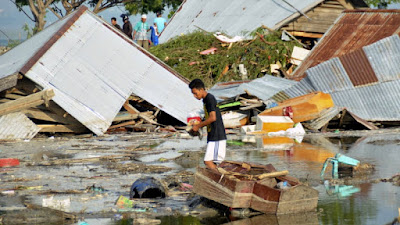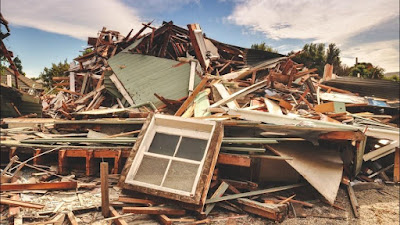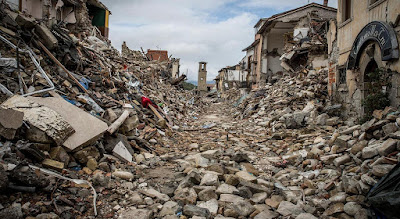This Greek village has become a symbol of the country's addiction to coal
Greece is the twelfth largest producer of coal. Cheap, but destructive energy not only for the environment, but also for the country's infrastructure.
The village of Anargyri is located in northern Greece, an hour's drive from the border with Macedonia. Not so long ago, about thirty years ago, nearly 400 people spent peaceful days there. The last census, carried out at the beginning of the year counts only 50.
The reason ? The excessive and utterly disorderly exploitation of coal mines . Greece is the twelfth largest producer of lignite, a kind of coarse coal, according to figures from the US government.
Many mines are operating in the region, and their subsidence, coupled with regional seismic activity, is causing small earthquakes and landslides that are ravaging everything in their path.
A devastated landscape
The houses are cracked, the roads collapse, the church bells no longer ring for fear of further weakening their steeples. The first effects of coal mining date back to the mid-1980s. " It was then that they started digging, which first swallowed the houses before swallowing us," says Michalis Bitas. a shepherd, at the Associated Press.
Greece, engulfed in the crisis, produces thousands of tons of lignite, a coarse coal which, when burned, releases more carbon dioxide than black coal. Difficult to transport because it is heavy, it is most often burned near its place of production. More information about soft story California
The country derives one-third of its energy from coal burning and the government does not seem to have left to put an end to it. Thus, three mines will soon be privatized, extending their life span.
Earthquake and landslide
But the effects on the population are disastrous. Last year, a landslide of 80 million cubic meters of earth and mud washed away about ten homes. The cause ? The collapse of part of a now unused mine.
The soil collapsed five or six meters deep and over a length of several kilometers. The nearest inhabitants had to be evacuated.
The situation is further aggravated by the presence of a tectonic fault passing under the region. At the slightest movement in the basement, the surface, weakened, is likely to collapse, leaving the inhabitants unresolved, apart from leaving the region.
Coal: an important source of employment
But those who stay in the sector, if they are well aware of the tragedy that is playing, also make it clear: the mines offer 5,000 jobs and the ability to obtain electricity at low cost.
While the majority of countries around the globe seem to have realized the urgency of global warming , Greece, it seems to go the other way. Despite multiple warnings from local non-governmental organizations, the country will continue to rely on fossil fuels.
" We are completely opposed to the privatization of mines because it will increase the production time of lignite, " warns the local branch of WWF, which has already pleaded the cause of the region to the European Parliament. But, for now, the situation does not seem to be part of evolving.























